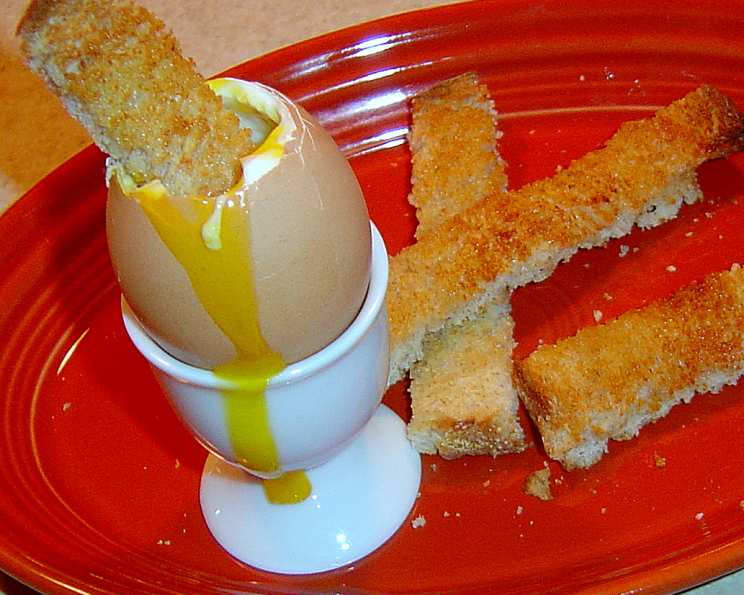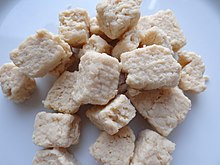All You Need to Know About Cup Eggs: A Comprehensive Guide for Parents
Hello there, fantastic parents! If you’re peeking into the world of cup eggs, also known as egg cups or soft-boiled eggs, you’re in for a clucking good time! Cup eggs are not only a delightful way to jazz up breakfast, but they’re also packed with nutrients perfect for your growing little ones. Don’t worry if you’re new to this egg-citing way to serve eggs; we’re here to crack the shell of mystery and pour out a well of knowledge for you!
What Are Cup Eggs?
First off, let’s define what we mean by cup eggs. Traditionally, they’re eggs that have been soft-boiled to perfection and served in a cute, often decorative, egg cup. The idea is to nip off the top and scoop out the gooey goodness with a spoon or dunk slices of toast into the yolk, affectionately known as “soldiers”. It’s a breakfast custom beloved across the globe and especially popular in Europe.
The Nutritional Benefits of Cup Eggs
So, why serve up cup eggs to your kiddos? Here’s the scoop:
- Protein Power: Eggs are a fantastic source of high-quality protein, essential for muscle growth and repair.
- Brain Boost: The choline found in eggs is a superstar nutrient for brain development.
- Eye Care: Lutein and zeaxanthin, antioxidants in eggs, do wonders for maintaining healthy vision.
- Vitamin Vault: They’re packed with vitamins A, B5, B12, and D, plus iron and selenium.
How to Perfect the Soft-Boiled Egg
Now, let’s get into the nitty-gritty of making those eggs just right. The key to the perfect soft-boiled egg is all in the timing:
- Bring a pot of water to a rolling boil.
- Gently lower your eggs into the water. If they sink and stand on one end, they’re very fresh – perfect for cup eggs.
- Set a timer. For a runny yolk, aim for 4-5 minutes. If you like it a tad firmer, go for 6 minutes.
- Once the time is up, scoop the eggs out and place them in cold water to stop the cooking process.
- Tap the top of the egg with a spoon to crack it, then remove a bit of shell and you’re ready to dip!
Remember, the size of your egg and the starting temperature (fridge-cold versus room temperature) can affect cooking time slightly, so you might need a couple of tries to find your perfect match.
Adorable Egg Cup Designs to Delight Your Children
Want to make breakfast even more egg-stra special? Let’s talk about egg cups! There are so many adorable designs out there:
- Animal-Themed Cups: From bunnies to bears, there’s a zoo of options that children love.
- Colorful and Bright: Brighten up the morning with vibrant, colorful egg cups.
- Characters and Heroes: Whether it’s superheroes or cartoon favorites, character egg cups can make mealtime magical.
But this is just the beginning! Stay tuned as we’ll dive deeper into fun recipes, safety tips, and creative ways to make the humble cup egg the highlight of your family’s day! Trust us; it’s going to be egg-ceptional!
As parents, introducing new forms of nutritious foods can sometimes be a tricky business, but with the charm of the cup egg and a sprinkle of imagination, you’re set to delight and nourish in equal measure. Continue reading to discover exciting recipes, engaging activities, and savvy tips to get your kids on board with this egg-cellent way of eating!
And always remember, whether you’re starting with the classics or getting adventurous with flavors, the joy of sharing a lovingly prepared meal with your children is the best seasoning of all. Let’s continue our egg-venture and discover more about the fun and benefits of cup eggs!

Five Essential Tips for Preparing Cup Eggs for Your Little Ones
Preparing cup eggs can seem as simple as boiling water, but a few pro tips can ensure that you serve up success every time. Here’s what every parent should know before embarking on the cup egg journey:
- Choose the Right Eggs: Freshness matters when it comes to cup eggs. Fresh eggs not only taste better, but they’re also easier to peel. Look for eggs that have a rounded, plump yolk and a thick, cloudy white – a sign they’re uber-fresh!
- The Perfect Boil: When boiling eggs, start with cold water and gently place the eggs in the pot. This gradual increase in temperature helps prevent cracking. And don’t forget, a gentle boil is better than a vigorous one to keep your eggs from bouncing around and cracking.
- Adding a Pinch of Salt: A bit of salt in the water can help make the eggs easier to peel, should you decide to serve them without the shell. It also adds a slight seasoning to the eggs, enhancing their natural flavor.
- The Cold Water Shock: Plunging your cooked eggs into cold water doesn’t just stop the cooking process; it also creates a slight contraction between the shell and the egg, making it easier to peel or open for dipping those delightful soldiers!
- Invest in an Egg Timer: Soft-boiled eggs are all about precision. While you can certainly use any timer, there are special egg timers that take the guesswork out of the process. Some change color to show you the doneness of your eggs – a great tool when you’re juggling the busy morning routine!
With these tips, you’ll be well-equipped to whip up a batch of cup eggs that will have your little ones excited for breakfast and ready to start the day with all the energy they need.
Creative and Fun Cup Eggs Recipes
Now that you’re armed with tips for the perfect cup egg, why not get creative? Here are some mouth-watering recipes that will turn this simple dish into a mealtime adventure:
- Cheesy Egg Cups: Before cracking the top, sprinkle a bit of shredded cheese on the egg and let it melt for a gooey, cheesy delight.
- Avocado Soldiers: Swap out toast soldiers for avocado slices – a healthy fat that pairs wonderfully with warm, runny yolk.
- Sweet Egg Cups: For a sweeter start to the day, serve soft-boiled eggs with strips of waffle or pancake. A dab of syrup makes it a breakfast to remember!
- Egg Cup Salad: Chop soft-boiled cup eggs and serve them atop a vibrant salad of mixed greens, cherry tomatoes, and cucumber for a nutritious lunchtime spin.
Your kids will love the variety, and you’ll love knowing they’re getting a wholesome and balanced meal.
Egg Safety Tips for Parents
As with all foods, it’s important to ensure that eggs are prepared and served safely to avoid any food-borne illness. Here’s what to keep in mind:
- Store Eggs Properly: Eggs should be stored in the refrigerator at 40°F (4°C) or colder to slow the growth of bacteria.
- Check for Cracks: Always check your eggs for cracks before boiling. Bacteria can enter through cracks in the shell, so it’s best to avoid using those.
- Cook Thoroughly: For kids, pregnant women, the elderly, and anyone with a weakened immune system, eggs should be cooked until both the white and yolk are firm. Remember, soft-boiled eggs have a runny yolk, so they may not be suitable for everyone.
- Practice Good Hygiene: Wash your hands before and after handling raw eggs to prevent the spread of bacteria.
Following these safety practices will help you serve up cup eggs not only with love but also with confidence in their safety.
There you have it, dear parents – a complete guide to the whimsical world of cup eggs. With these pearls of wisdom, you and your kiddos are all set for a truly egg-ceptional experience. Excited chatter around the breakfast table and those bright morning smiles are just a cup egg away! Embrace the joy and let those eggs shine!
See more great Things to Do with Kids in New Zealand here. For more information see here
Disclaimer
The articles available via our website provide general information only and we strongly urge readers to exercise caution and conduct their own thorough research and fact-checking. The information presented should not be taken as absolute truth, and, to the maximum extent permitted by law, we will not be held liable for any inaccuracies or errors in the content. It is essential for individuals to independently verify and validate the information before making any decisions or taking any actions based on the articles.




